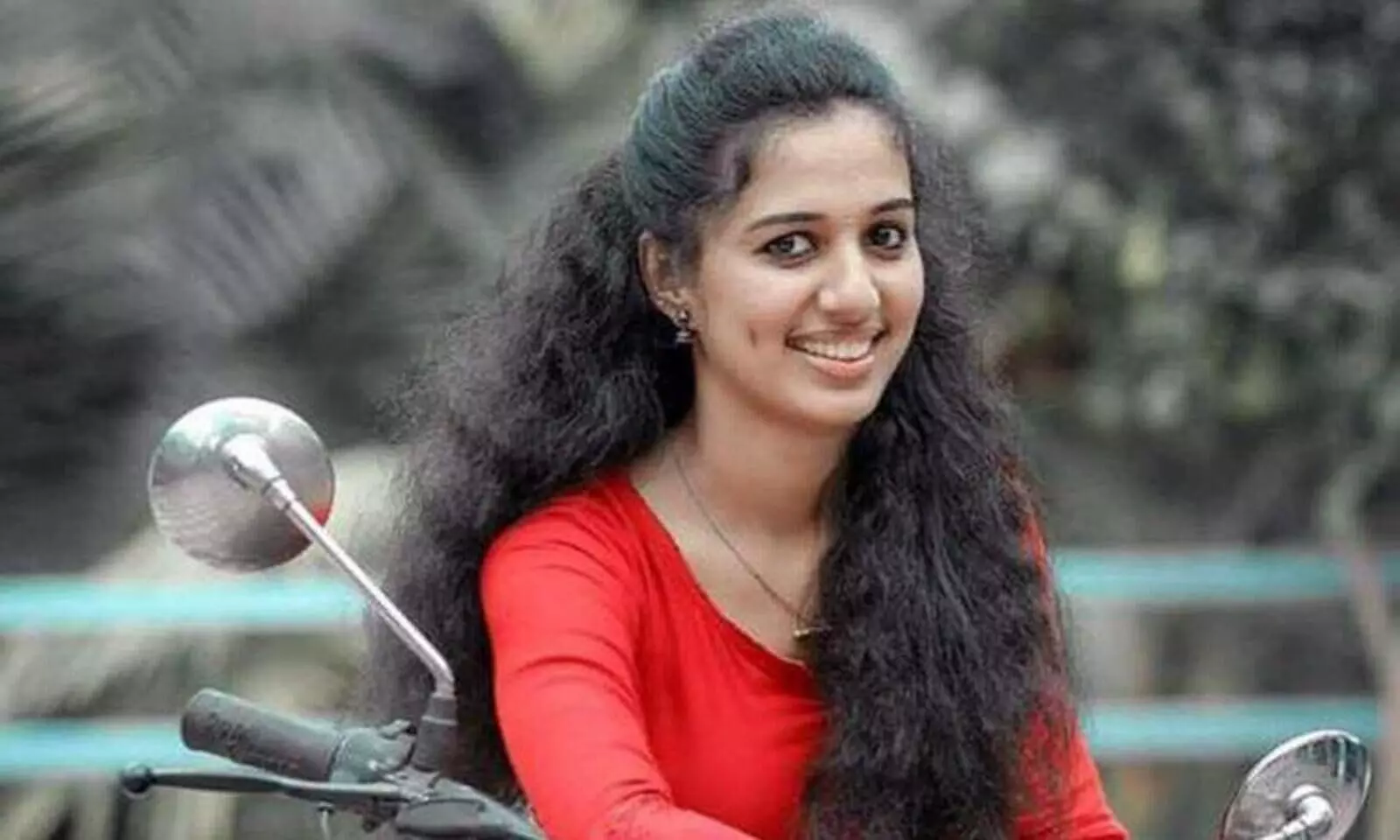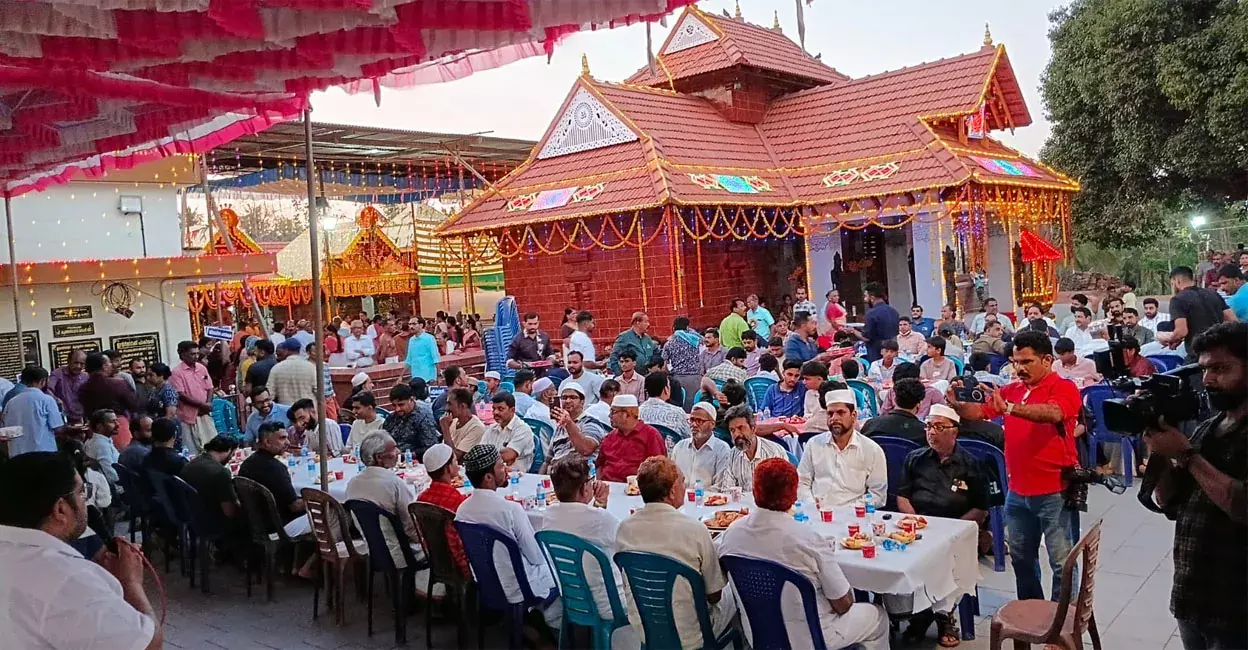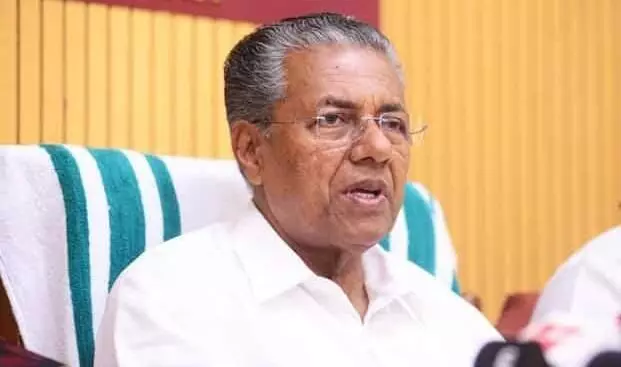

Vismaya V Nair was found dead in her husband's house in Kerala's Kollam district on June 21
Dowry deaths, Kerala's unmitigated shame
text_fieldsIn the course of the last few days, four young Keralite girls took their lives due to violence and abuse faced in their husbands' homes. How many dowry deaths will it take till we realise that too many girls have died? Bob Dylan's 1962 song "Blowing in the Wind" can be tweaked to press the present context of dowry deaths in the state that exudes an ethnic and cultural superiority complex.
We have heard enough poignant details of the victim's stories; the tears of the parents and siblings cut no ice with me. Let's own up at least this time: the originators of the crime are without a shadow of a doubt the dead girl's family, which belonged to the society's pro-dowry economic elite. The parents partook and revelled in the sado-masochistic medieval marriage market and willingly subjected themselves to self-mortification. Self-flagellation rituals exist in almost every religious tradition, in which there are a few chosen inflictors and inflicted, and many fervent spectators.
Before even going to the dowry bargaining table, the father of the bride-to-be could have broken the chain. He was avowedly trying to secure his daughter's future with an obscene amount of wealth which he transferred to his son-in-law, his daughter's guardian post-marriage.
The parasitic groom and his family figure only as secondary targets of blame in my reckoning. They merely leveraged the extractionist economic logic that rode on the back of a system that stigmatized adult women who fell outside the institution of marriage. He felt free to continually harass the girl about a mere detail of the car he received as dowry as it was at some slight variance with the dowry deal.
By and large, marriage still remains a financial and social contract where two families compare family names, caste pedigree, finances etc to create an invincible yoke to carry forward traditions into the next generations. Once the agreed-upon valuables are transferred to the groom's side, the girl's fate is sealed.
Despite whatsapp pleas sent to multiple relatives, in which she even forwarded personal photographs containing irrefutable proof of a violent relationship, no one came to her rescue. None was willing to disturb the socio-economic and ideological social fabric in which they were embedded. Silence is a big part of family legacies that helps to further the norms of female chastity, devotion and decorum.
Society spectacularly disseminated the narrative that Roop Kanwar, burned as Sati on the funeral pyre of her husband, died a painless death. Scholar Ania Loomba talks about the "frustrating circularity of language and arguments" when it comes to socially and culturally embedded misogyny
The second death in Kerala was of a girl, who committed the crime of marrying for love. This stopped her from rushing back to her parents confessing her error of judgment in choosing a man who turned out to be an abusive husband. Literate Kerala and its enlightened population hang on an abysmal vismayathumbathu (meaning 'extremes of wonder' in Malayalam) of incongruity, ducking under the hypocrisy embodied in the question "What will people think, how will society judge?" instead of embracing her daughters. The inexplicable and invisible chains of social dogma, family pride and guilt that bind young married women caught in violent marriages were evident in the extreme nervousness with which a young woman called up MC Josephine, Chairperson, now former, of the Women's Commission. Let alone boldness, these timid women lack even the language and grammar to express the myriad ways that patriarchy binds them. When the now former Women's Commission Chairperson expresses extreme exasperation at why this girl suffered the violence for so long instead of filing a police case long ago, it showed two women at two extreme ends of a spectrum.
To be the devil's advocate, I personally do not think that each case of dowry-related violence can be handled with kids gloves; feeling confident that there is a robust feminist movement in Kerala for those who want to seek it out, young women should just speak out – the first step in breaking the chains of an oppressive tradition.
In the four instances of dowry-related deaths, all the players are merely incidental. The larger society, which feeds on the dehumanizing spectacles of one half of the population, is to blame. The brother of the girl is also just recently married and he and his family probably could have been bargaining in the same marriage market. When we talk of dowry especially, we can borrow Ashis Nandy's dictum that the oppressed is never a pure victim.
Anti-dowry legislations have so far been a disaster, to say the least. CM Pinarayi Vijayan has stated that his government was contemplating the inclusion of gender equality and anti-dowry lessons in Kerala's education system as the mindset of boys and girls should be shaped from a young age. We can borrow the philosophy of Periyar E V Ramaswamy on the rights of women to create a gender-just consciousness in our society.
(Leena Mariam Koshy is a writer based in Kozhikode, Kerala)

























